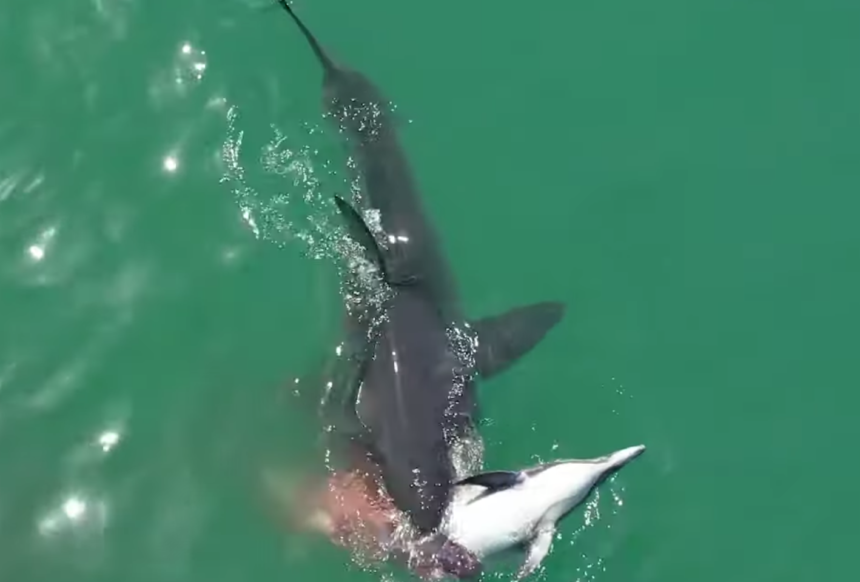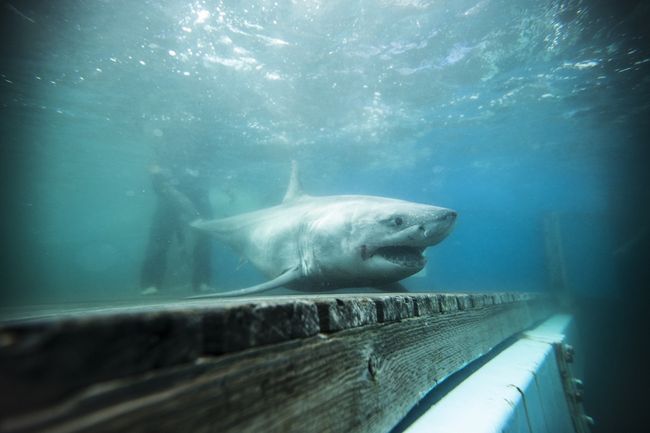


“What we’ve detected here is just a harbinger of much broader patterns.”

The shifting of species’ ranges is a global phenomenon, he said. “White sharks aren’t just another species – they’re an apex predator and all eyes are on them in the ocean,” said Kyle Van Houtan, of the Monterey Bay Aquarium in California. Scientists hope the disruption to the habitat of a high-profile shark will highlight how global heating is pushing marine animals towards the poles and scrambling the species present in oceans’ ecosystems, with unpredictable and damaging consequences. There is concern over the potential for new encounters between sharks and people as well, although the rate of shark attacks has fallen steeply in recent decades. The shark is the top predator, so its shift is upsetting ecosystems with populations of fish such as salmon also falling. The overall range suitable for the sharks in the region has shrunk as more areas have become too hot, forcing predator and prey closer together.


 0 kommentar(er)
0 kommentar(er)
